★★★★
A few weeks ago I reviewed Sort Sol Theatre’s Where Have All Our Women Gone?: a new piece of writing that covers the devastating treatment of women in recent years, reflecting on the cases of Sarah Everard, Nicole Smallman and Bibaa Henry to name but a few. I was particularly moved by Elizabeth Huskisson’s sensitive one-woman show at The Hope Theatre, so when I had the opportunity to return to the venue for another piece of the company’s work in TOSKA, I absolutely had to make time in my schedule for a review.
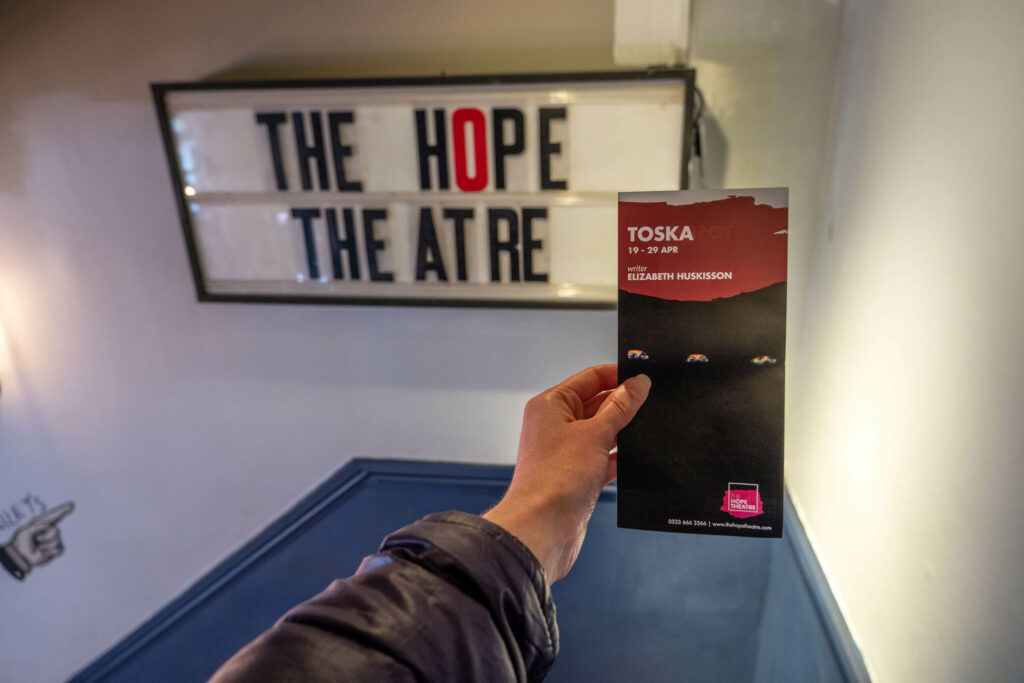
About TOSKA
Following on a similar theme and covering the mistreatment of women, TOSKA is set in Russia and is based on the case of the Khachaturyan sisters who were physically and sexually abused by their father. This prolonged abuse led to them committing his murder, with the sisters incarcerated since 2018 and awaiting trial. It’s a complex case given the history of abuse, the age of the women at the time and 2017 legislation changes which effectively legalise first offence battery violence. Huskinsson’s work picks apart the events that happened, providing a voice to the sisters, at a time when they could be sentenced to up to 20 years in prison for the crime.
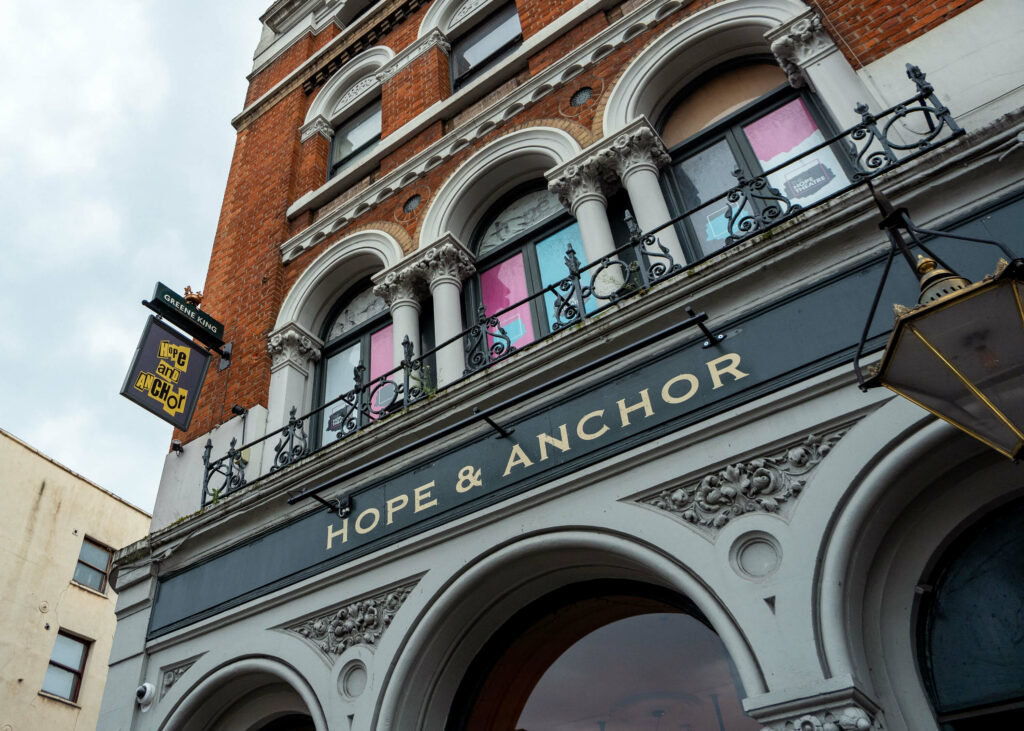
Physical theatre elements
Starring Huskisson, Phoebe Mercer and Alfreya Bell in the roles of Kristina, Angelina and Maria, TOSKA is a dance and movement piece that has been split into three parts: childhood, the crime and the aftermath. The production starts and ends with powerful real-life video footage from Russia, showcasing protests and domestic violence cases. Between these snippets, the performers use their bodies to convey the sense of fear, panic and frustration that has built up inside the teenagers.
Throughout the play there are similarities within the motions across the stage, but each artist offers a personal take on the movements. At times the actions feel like twitching or tics, associated with years of abusive behaviour. From the biting of the nails to full body shakes, Huskisson’s choreography is intentionally uncomfortable to watch. There is so much visual distress on stage, particularly as the material progresses, that at times you don’t know where to look. Perhaps there could have been moments where each sister moves in isolation, providing the audience with the opportunity to focus on the sisters on an individual basis. This would ensure physical details aren’t missed, as so much thought has gone into every action.
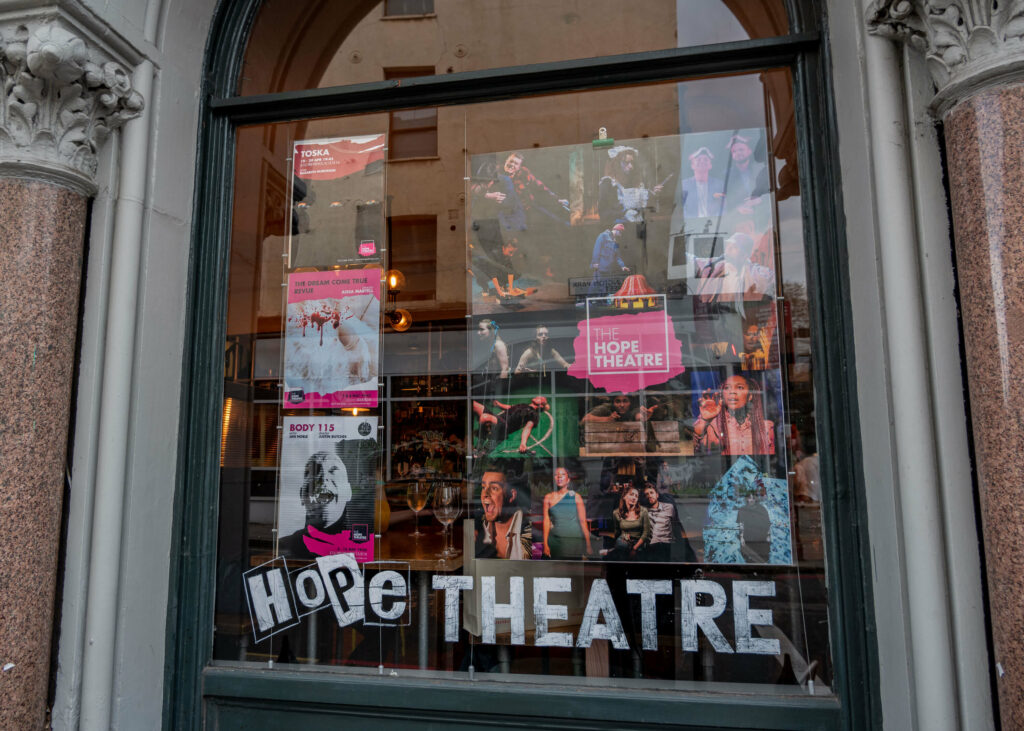
Language and dialogue
Sharing a title with an untranslatable Russian word and concept that is part of the cultural identity of Russian citizens, TOSKA in its name has association with sadness, depression and a lack of self-satisfaction. The use of Russian language doesn’t just stop at the title though, the sisters communicate in the local dialect at times throughout the performance. I don’t know any Russian, but the actors’ delivery of the lines in the native words instantly evokes a feeling of distress and panic, even without an understanding of what is being said. It goes without saying that the sisters are terrified for their lives and this fear knows no bounds; even a different language can’t hide the inner terror that the teenagers are experiencing.
Whilst I was impressed by the alternation between English and Russian, I would have liked to have heard more dialogue throughout the piece. The physical theatre elements do speak for themselves and offer a lot of room for personal interpretation, but with such long breaks between the pieces of narration, I felt a little lost at times, with so many questions about the breadth and depth of the trauma that the teenagers faced. For example, where was their mother and other family members in all of this? The girls are extremely isolated in this stark interpretation of the true events and whilst I would have felt more satisfied with the addition of more information about their wider family, it is harrowing seeing the performers all alone on stage.
There’s a beautifully delivered line from Maria about how her sisters had to grow up so quickly and ultimately take on a maternal role, something that really stuck with me and brought the whole piece full circle, encapsulating the years of abuse in one sentence. This is just one example of Huskisson’s thoughtful writing, that I would have liked to have heard more of throughout the work.
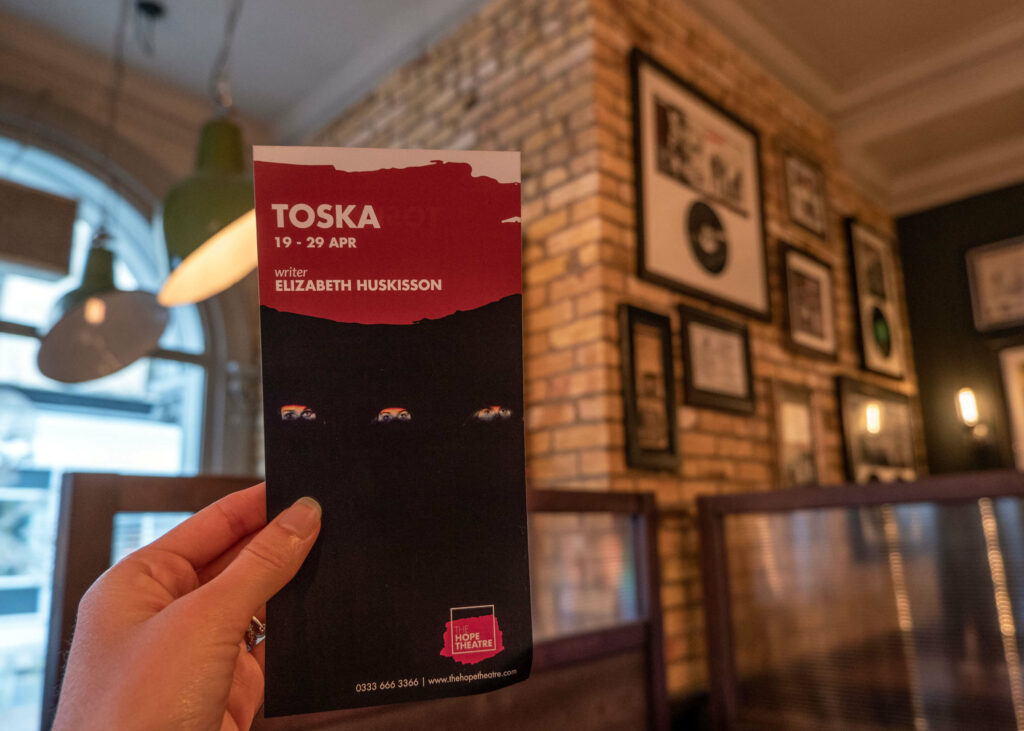
Visual imagery
Each actor wears a childlike pastel dress, matching socks and has their hair put back in youthful pigtails. The dresses are the same style but each a unique shade, providing visual consistency between the sisters. Most sisters of a similar age wear matching dresses at some point in their lives, but the choice to dress the sisters the same takes on a whole different meaning in the context of TOSKA. It is a powerful visual image, reflecting youth and innocence, something the women tragically weren’t able to enjoy.
The significance of cloth fabric in the first and second sections particularly caught my attention. I won’t go into too much detail as this is one of the most impactful parts of the production for me, but the cloth has significance to both the girls’ home lives and the murder. When combined with the contemporary dance movements, the prop is a chilling example of how a domestic object can have such distressing meaning in a situation of violence.
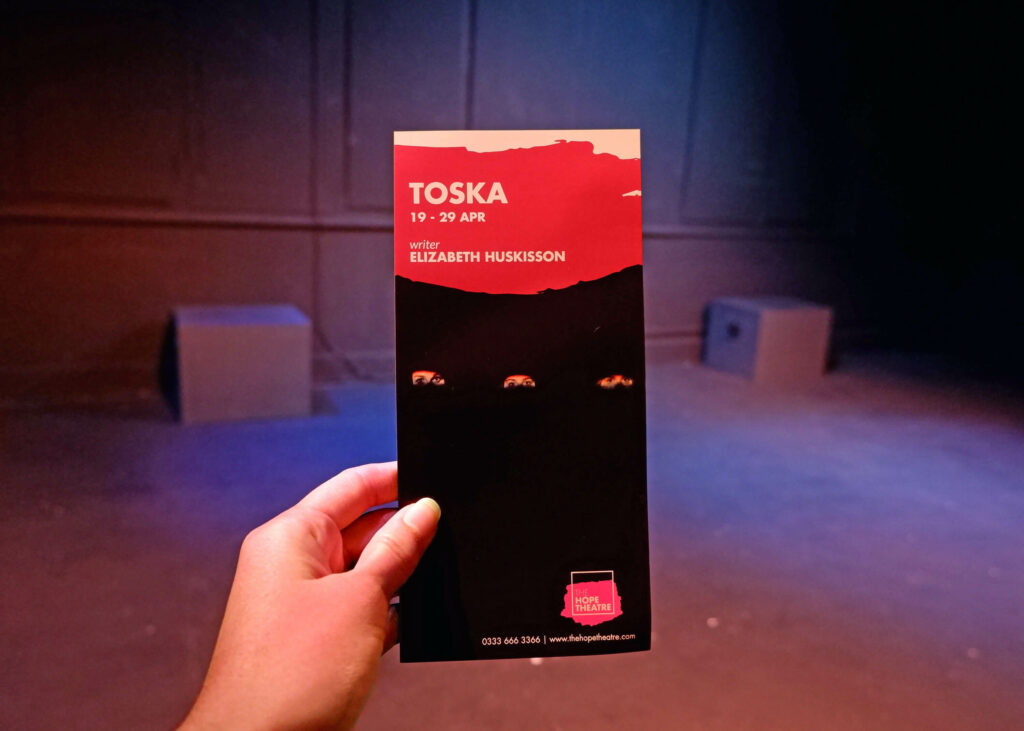
What’s next for TOSKA?
A topical and thoughtfully written play, TOSKA provides a platform for the unsung voices of the Khachaturyan sisters as they await trial, five years after the crime. It’s a complex piece of work that reflects on a case that has gripped Russia, which until a few weeks ago I was unaware of. Huskisson, Mercer and Bell carefully capture the sisters’ pain in their physical movements and in doing so, provide a platform for domestic violence victims across the Russian nation.
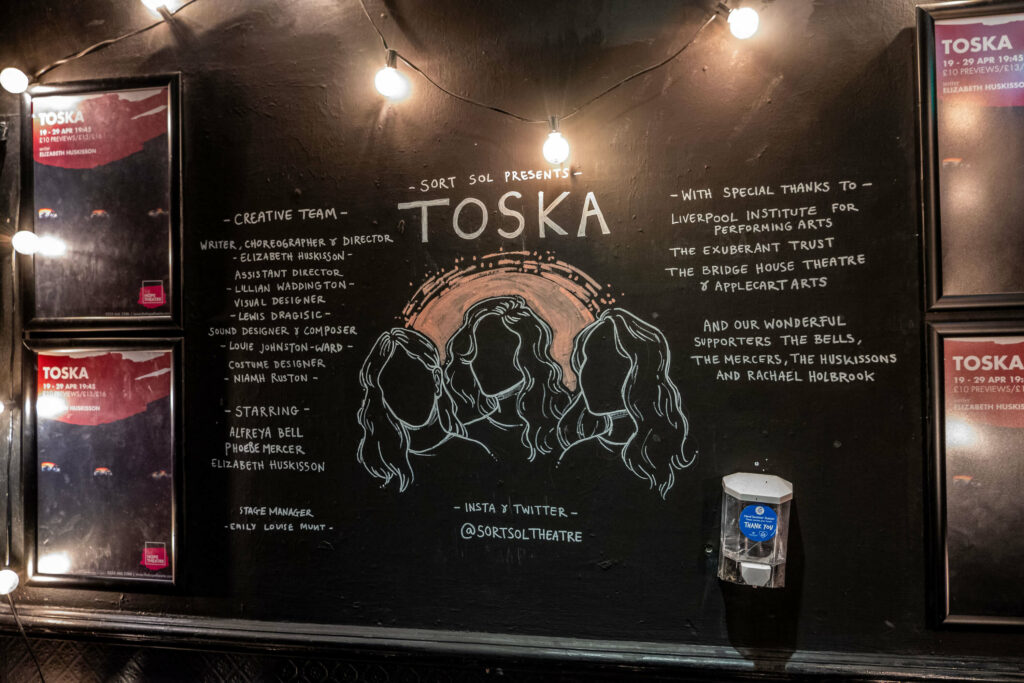
In terms of scalability, TOSKA is an incredibly intimate piece of theatre and I think the production’s impact would be lost in a larger venue. It works well at The Hope Theatre with its close knit production space, but the material would need adaptations to work in a larger space. TOSKA is based at the Islington venue until 29th April and tickets can be purchased from the theatre’s website. I look forward to hearing what comes next for this poignant production; Huskisson is an incredibly talented theatre maker.
Thanks for reading my blog today.
Love Kat xxxx
*My ticket for TOSKA was gifted in exchange for a review of the production.

Comments